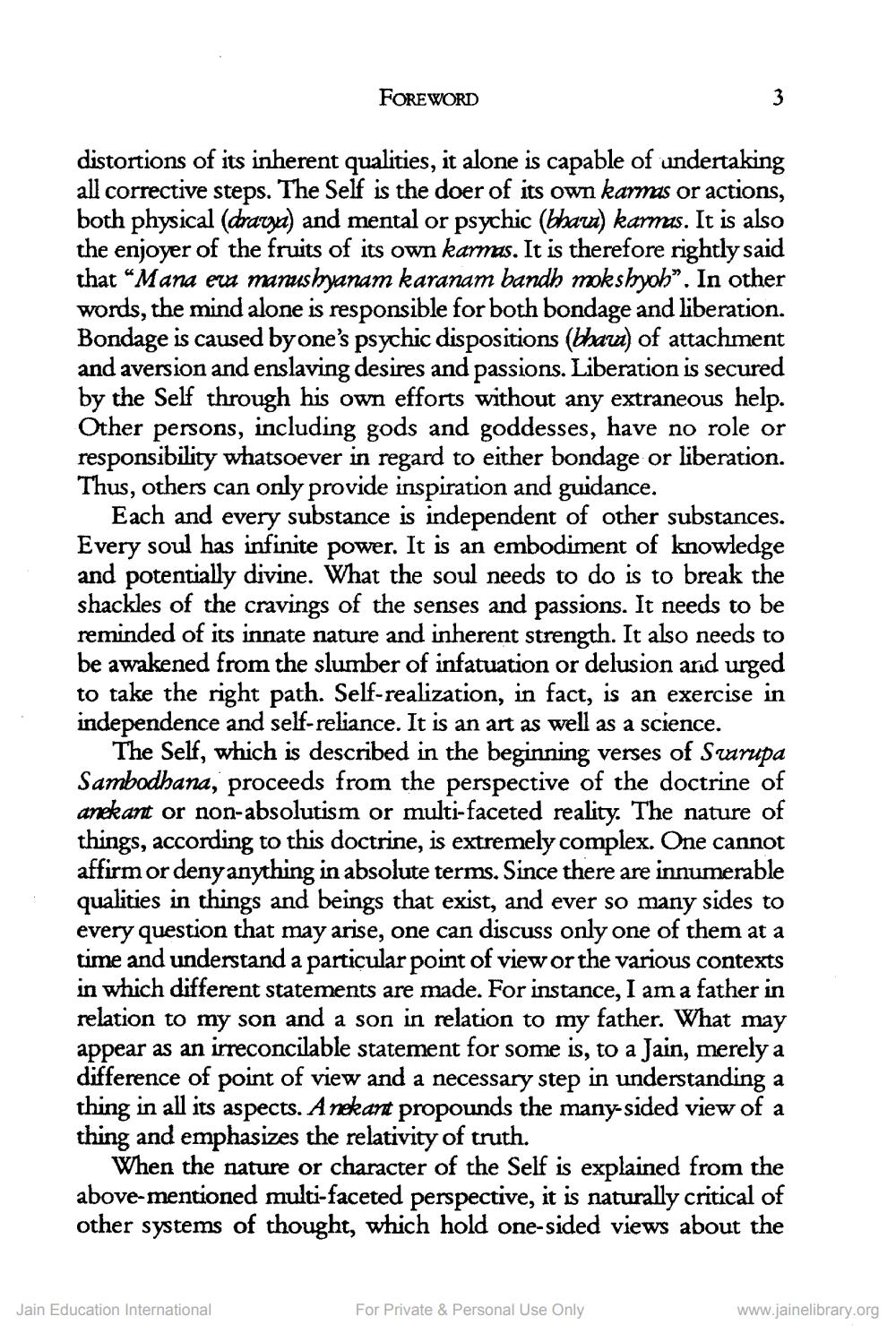________________
FOREWORD
distortions of its inherent qualities, it alone is capable of undertaking all corrective steps. The Self is the doer of its own karmas or actions, both physical (dravya) and mental or psychic (bhara) karmas. It is also the enjoyer of the fruits of its own karmas. It is therefore rightly said that "Mana eva manushyanam karanam bandh mokshyoh". In other words, the mind alone is responsible for both bondage and liberation. Bondage is caused by one's psychic dispositions (bhara) of attachment and aversion and enslaving desires and passions. Liberation is secured by the Self through his own efforts without any extraneous help. Other persons, including gods and goddesses, have no role or responsibility whatsoever in regard to either bondage or liberation. Thus, others can only provide inspiration and guidance.
3
Each and every substance is independent of other substances. Every soul has infinite power. It is an embodiment of knowledge and potentially divine. What the soul needs to do is to break the shackles of the cravings of the senses and passions. It needs to be reminded of its innate nature and inherent strength. It also needs to be awakened from the slumber of infatuation or delusion and urged to take the right path. Self-realization, in fact, is an exercise in independence and self-reliance. It is an art as well as a science.
The Self, which is described in the beginning verses of Swarupa Sambodhana, proceeds from the perspective of the doctrine of anekant or non-absolutism or multi-faceted reality. The nature of things, according to this doctrine, is extremely complex. One cannot affirm or deny anything in absolute terms. Since there are innumerable qualities in things and beings that exist, and ever so many sides to every question that may arise, one can discuss only one of them at a time and understand a particular point of view or the various contexts in which different statements are made. For instance, I am a father in relation to my son and a son in relation to my father. What may appear as an irreconcilable statement for some is, to a Jain, merely a difference of point of view and a necessary step in understanding a thing in all its aspects. Anekant propounds the many-sided view of a thing and emphasizes the relativity of truth.
Jain Education International
When the nature or character of the Self is explained from the above-mentioned multi-faceted perspective, it is naturally critical of other systems of thought, which hold one-sided views about the
For Private & Personal Use Only
www.jainelibrary.org




